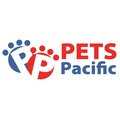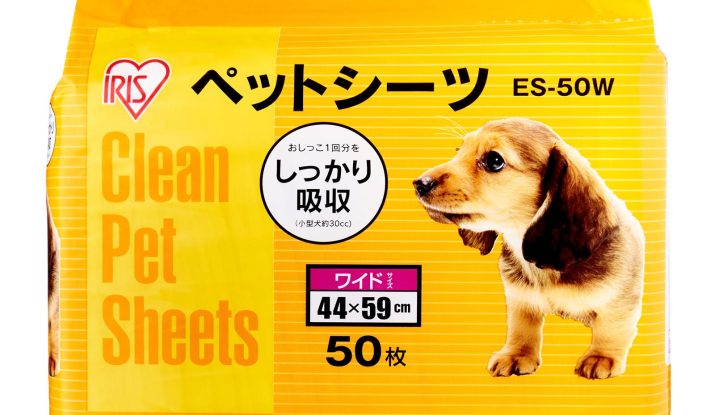Sourcing Sustainable and Ethical Pet Food: Tips for Suppliers
As the pet food industry continues to expand rapidly, a parallel surge is also taking place with the increase in demand for sustainable and ethical pet food. With the modern consumers heightening concerns about the ecological and ethical ramifications of their choices, the responsibility falls on pet food suppliers, who must shift their operations to cater to this worthy cause. So let’s look at how suppliers can source sustainable and ethical pet food to provide their customers with the best options for their pets, as well as for society and the environment.
Ingredient Sourcing
In the pursuit of crafting sustainable pet food, ingredient sourcing emerges as a pivotal factor. Several considerations come into play for pet food brands when they source their ingredients. For suppliers, it is important to be aware of these considerations so that you know what to avoid and what to look for.
- Environmental Impact: It is imperative to evaluate the environmental consequences of ingredient production. Ingredients that require excessive resources, contribute to deforestation or have a high carbon footprint should be rethought. Instead, you should look for products that use locally sourced ingredients, organic ingredients to reduce chemical exposure and non-GMO ingredients to promote biodiversity.
- Ethical Treatment of Animals: The treatment of animals involved in ingredient sourcing should align with ethical standards. Avoiding suppliers that engage in practices like factory farming or animal cruelty is essential. Instead, try to look for free-range, cage-free and wild-caught ingredients.
- Fair Treatment of Employees: Along with animals, it is essential that all workers involved in the production of the ingredients are compensated and treated fairly.
- Quality and Nutritional Value: The nutritional value of ingredients directly impacts the health of pets. Opt for high-quality ingredients that provide the necessary nutrients without compromising animal well-being.
Certification and Labels
Certifications and labels act as guideposts for consumers seeking ethical and sustainable pet food options. Some prominent certifications include:
- Certified Humane: This certification ensures that animals are raised with adequate space, shelter, and humane treatment.
- Animal Welfare Approved: Similar to Certified Humane, this label indicates that animals are raised in accordance with rigorous welfare standards.
- Non-GMO Project Verified: This label signifies that the product is free from genetically modified organisms, promoting environmental and health benefits.
- Rainforest Alliance Certified: This certification emphasises responsible sourcing, environmental sustainability, and social welfare.
Researching and aligning with certifications that resonate with your target audience can bolster credibility and transparency.
Environmentally Friendly Packaging
Packaging plays a significant role in the sustainability equation. Key considerations include:
- Materials Used: Opt for packaging materials that have a lower environmental impact, such as recycled or renewable materials.
- Recyclability: Packaging should be easily recyclable, reducing the waste burden on landfills.
- Production and Transportation Impact: Assess the carbon footprint of packaging production and transportation, aiming for minimal ecological consequences.
Sustainable packaging options range from recyclable materials to compostable solutions and even refillable packaging systems.
Partnering with Ethical Suppliers
Aligning with suppliers that share a commitment to sustainability and ethics is a critical step in the process. During supplier evaluation, take the following factors into account:
- Environmental Practices: Suppliers should demonstrate efforts to minimise their environmental footprint through sustainable practices.
- Ethical Practices: Ethical suppliers prioritise animal welfare and human well-being throughout their operations.
- Quality Control: Suppliers must uphold stringent quality control procedures to ensure the final product’s consistency and safety.
Collaboration with ethical suppliers enhances the overall sustainability of the pet food supply chain.
Consumer Education
Educating consumers is paramount to fostering a sustainable and ethical pet food culture. Consider employing the following methods:
- Informative Content: Develop content on your website, blogs, or educational materials that elucidate the benefits of sustainable and ethical pet food.
- Social Media Engagement: Leverage social media platforms to share educational posts, infographics, and success stories.
- In-Store Displays: Create in-store displays that educate consumers about the positive impact of their choices.
Empowering consumers with knowledge enables them to make informed decisions and contribute to a more sustainable industry.
Source Sustainable Pet Products In Marsiling with Pets Pacific
As the global consciousness about sustainability and ethical sourcing continues to grow, pet food suppliers have the opportunity to lead positive change in the industry. For those seeking a reliable partner in this journey, Pets Pacific stands out as a sustainable pet products supplier committed to helping you achieve your sustainability goals.
We offer pet products in Marsiling that align with the sustainability goals of many consumers. By choosing Pets Pacific, you empower yourself and your customers to make informed choices that extend beyond pet care. Through our collaboration, you become part of a larger movement that seeks to redefine the pet food industry and create a legacy of responsible consumption.
With Pets Pacific as your supplier for pet products in Marsiling, you are making a conscious decision to support a movement that prioritises the environment, animals, and the well-being of your beloved pets. Contact us today to find out more about our products!

